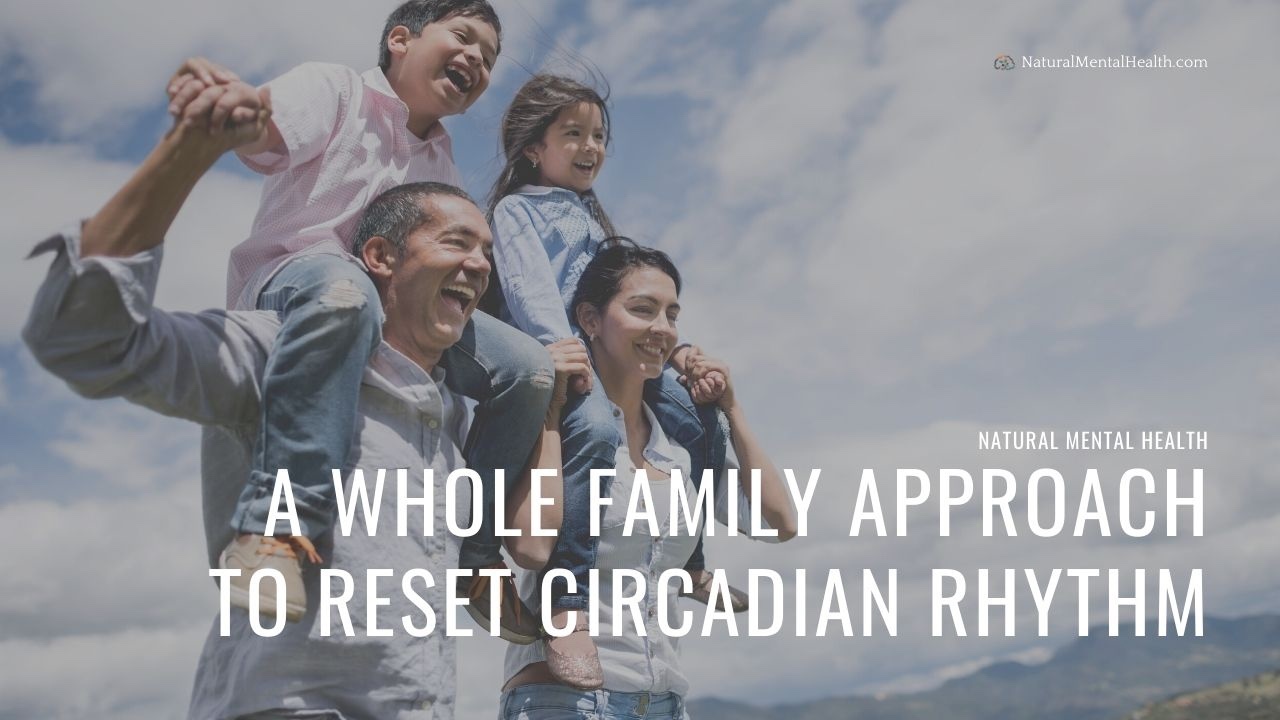
Sleep and ADHD: A Whole Family Approach to Reset Circadian Rhythm
Aug 29, 2019Timothy Culbert, MD, IFMCP
Creating a culture of healthy sleep in a household requires a “whole family” behavioral approach to sleep. That means you'll need everyone in your home to opt-in to healthy sleep hygiene practices.
Sleep Hygiene and Routines
Sleep hygiene refers to sleep practices (I call them routines and rituals) that are conducive to sleeping well on a regular basis.
Sleep routines and rituals are done at the same time and sequence each night as a way of winding down and giving your mind and body time and cues to move into a more calm and quiet mode to ease the transition into sleep.
No matter if your family consists of just you, twelve cats, or lots of humans, you'll want to consider all the beings and environmental influences that can be optimized for sleep. Short-term assists like melatonin can be helpful, but it's really the establishment of healthy sleep practices that bring the lasting benefits.
The benefits of integrating sleep routines and rituals
For all humans, effective bedtime routines and rituals help:
- Overall sleep quality... which means better physical and mental health in nearly every aspect (worth it, right?!).
For kids calming, consistent bedtime routines provide:
- Predictability
- Improved behavior, Increased happiness
- Sense of security, less stress
- Built in opportunity for practicing self-calming skills
- Sleep cue for the body, increases all-night sleeping
For parents, effective bedtime routines and rituals help:
- Provide a sense of control, consistent expectation of what is going to happen
- End arguments with kids about what is going to happen next
- Establish a sense of calm, more happiness, feeling of success as a parent
For pets, effective bedtime routines provide:
- Nearly the same benefits as kids (your fur babies need to function well too).
If you're ready to take action on your household's sleep routine, then visit this article for more resources to help you create morning and evening routines/rituals and help for creating an ideal sleep environment.
RELATED ARTICLES
How to Use Melatonin to Reset Circadian Rhythm
Melatonin can be helpful for kids and teens with ADHD for both sleep onset and sleep maintenance issues. Learn how to use melatonin safely. Read more.
The Connection Between Sleep and ADHD
Many of the same brain regions that regulate sleep and arousal also control attention. The relationship between ADHD and sleep is becoming more clear as new research has identified that between 55% and 75% of kids and adults with ADHD also suffer from sleep related issues. Read more.
SOURCES
Arns & Kenemans. (2014). Neurofeedback in ADHD and insomnia: Vigilance Stabilization through sleep spindles and circadian networks.
Bijlenga et al. (2019). The role of the circadian system in the etiology and pathophysiology of ADHD: time to redefine ADHD?
Abdelgadir et al. (2018). Melatonin for the management of sleep problems in children with neurodevelopmental disorders: a systemic review and metanalysis.
Cummings. (2012). Melatonin for the management of sleep disorders in children and adolescents.
Masi et al. (2019). Effects of melatonin in children with attention-deficit/hyperactivity disorder with sleep disorders after methylphenidate treatment.
FURTHER READING ON SLEEP AND ADHD
https://thesleepdoctor.com/2018/04/24/a-new-theory-about-adhd-and-sleep/
https://www.additudemag.com/adhd-sleep-disturbances-symptoms/









